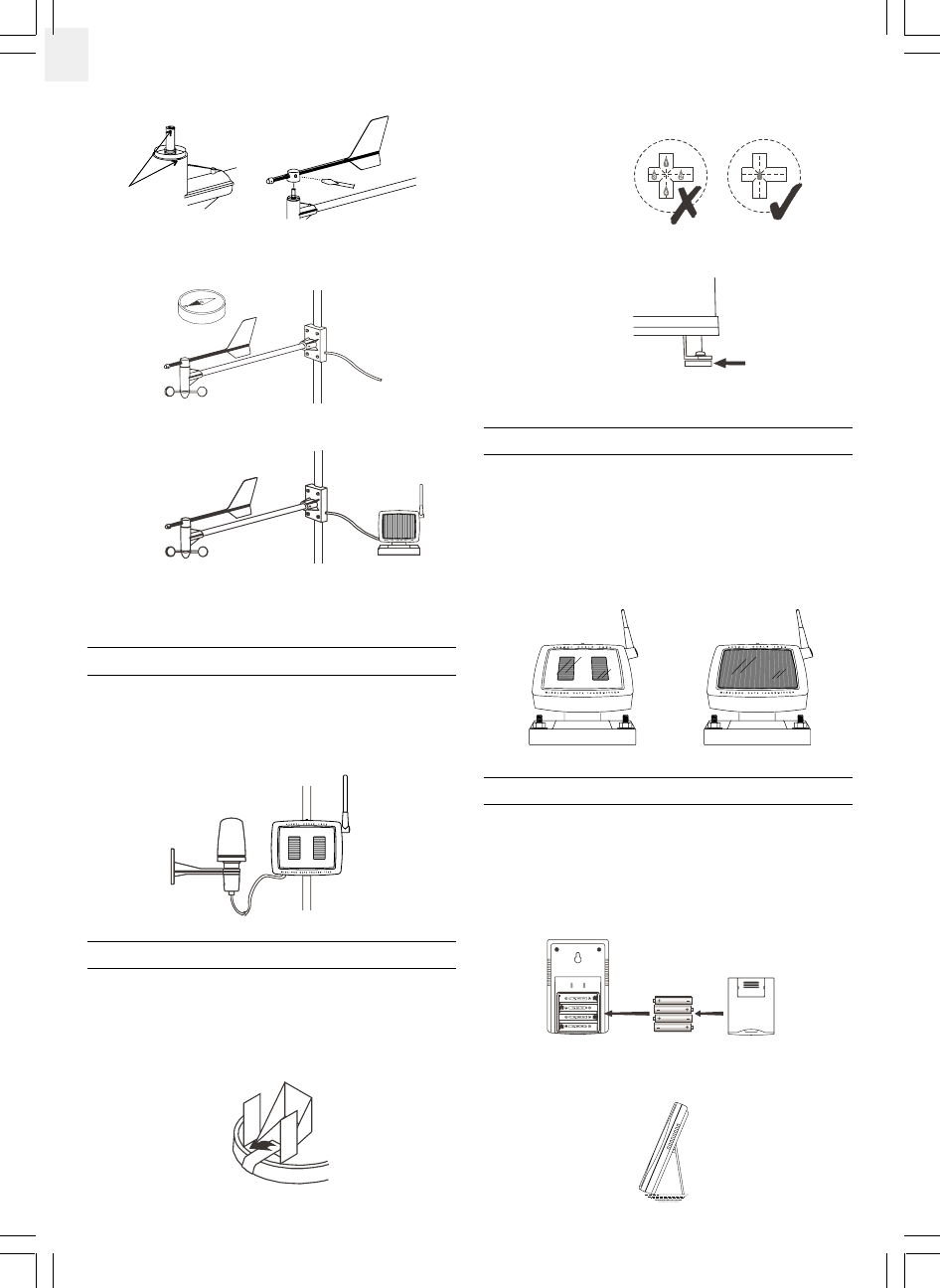
2
GB
3. Align the red markings on the wind vane’s shaft.
4. With the aid of a compass, face the red marking south before
mounting the anemometer.
5. Mount the anemometer and its solar transmitter safely in place.
The wind speed and direction window on the main unit should read
180° if the main unit is installed.
THE THERMO-HYGROMETER
The thermo-hygrometer measures outdoor temperature and
humidity.
To install it:
Mount the thermo-hygrometer and its solar transmitter safely in
place.
THE RAIN GAUGE
The rain gauge measures the total amount and rate of rainfall.
To install it:
1. Open the cover of the rain collector.
2. Remove the fiber tape from around the bucket assemblies.
3. Mount the rain gauge and its solar transmitter safely in place.
4. Put drops of water on the cross at the base on the rain collector
to check the leveling.
5. Use metal ring to adjust the leveling of the rain collector if
necessary.
6. Close the cover of the rain collector.
THE SOLAR TRANSMITTERS
The solar transmitters make use of solar energy to power the
instruments they are connected to.
Note: It is recommended to insert two UM3 or “AA”-sized super
lithium batteries for weather condition under 0 °C (32 °F).
For the solar transmitters to function properly, make sure the solar
receptors on the transmitters are exposed to sunlight and the
connectors of the connection cable are securely plugged in.
THE BARO-THERMO-HYGROMETER
The baro-thermo-hygrometer measures the atmospheric pressure,
temperature and humidity.
The sensor uses four UM4 or “AAA”-sized batteries.
To install it,
1. Insert alkaline batteries accordingly.
2. Mount the unit where you want to monitor the readings. Or you
can make use of its table stand to place it on a flat surface.
Water stay at
position 1 - 4
means the gauge
is not leveled
METAL RING
928N-USE.p65 08/10/2001, 12:20 PM2











